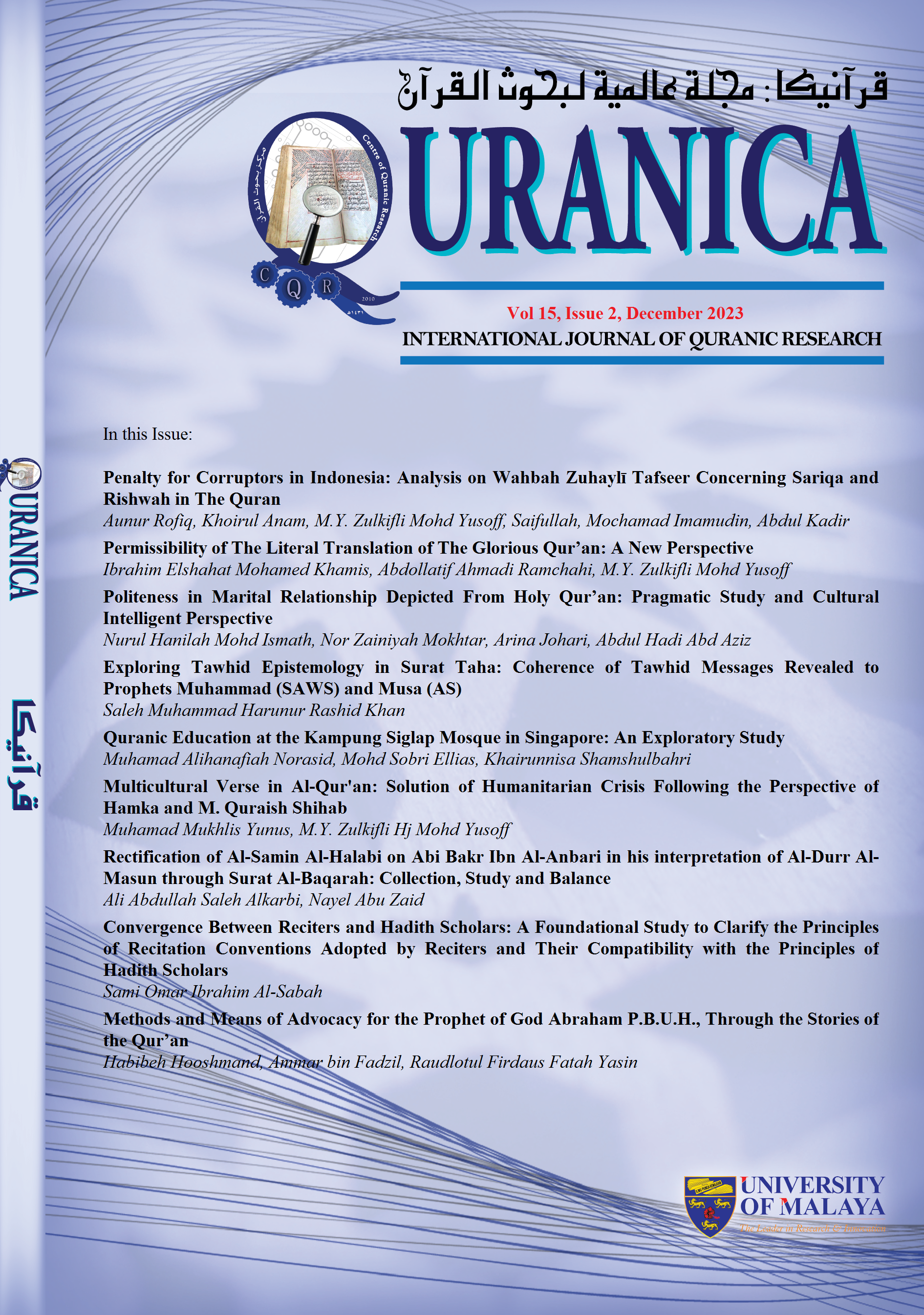Analyzing the Employment of Recitation of God's Names, Attributes, and Prayers in the Tafsir of “ Kashf al-Asrār wa ʻIdatu al-Abrār”
Main Article Content
Abstract
Abū ʾl-Faḍl Rashīd al-Dīn Maybudī (ca. 1045-1126 CE) was a prominent Sunni Persian Sufi scholar, exegete, and author. Among the mystical or Sufi commentaries on the Quran, Abū ʾl-Faḍl Rashīd al-Dīn Maybudī's Kashf al-Asrār wa ʻIdatu al-Abrār stands out as a relatively lesser-known work within the broader corpus of Islamic scholarship. This article explores the life and works of Shaykh ʿAbd al-Qādir al-Mībdī, with a particular focus on the mystical methodology he employed within his influential Qur'anic commentary, Kashf al-Asrār and ʿUdda al-Abrār. Specifically, it examines how al-Mībdī utilized invocations, Recitation of God's Names (munājāt), glorification, Attributes (tasbīḥ), and praise (taḥmīd) in his exegesis. The methodology adopted in this study is inductive-analytical.
Downloads
Article Details
Disclaimer
QURANICA makes every effort to ensure the accuracy of all its contents. However, opinions, discussions, views and recommendations are expressed in this journal do not necessarily reflect the official policy of QURANICA or views of its editors or publishers. Therefore, QURANICA and its publishers will not be liable for any controversy may be arisen. The journal reserves the right, at its sole discretion, to change its terms and conditions of publications.
Copyright
It is a condition of publication that manuscript submitted to the journal have not been published, accepted for publication, nor simultaneously submitted for publication elsewhere. By submitting a manuscript, the author(s) agrees that copyright for the article is transferred to the publisher, if and when the manuscript is accepted for publication.
